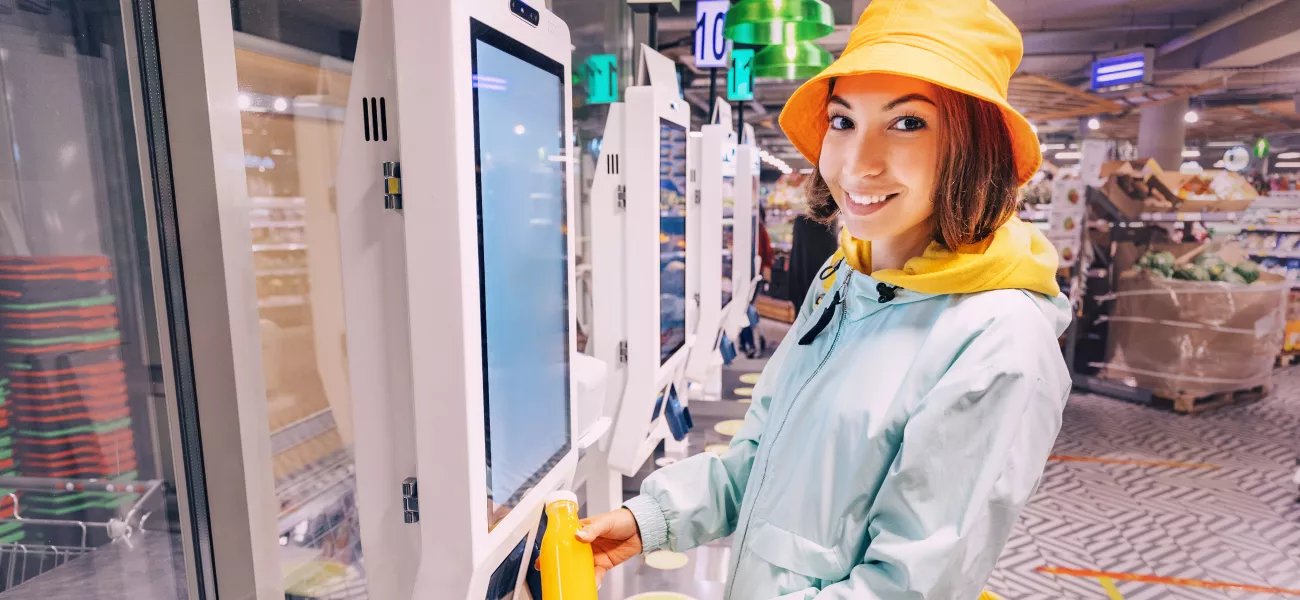
In recent years, digital advancements have brought transformative change to retail, with unmanned stores increasingly becoming a viable shopping model that’s both convenient for customers, and efficient for retailers.
The growth of unmanned stores, and the use of the technology that supports the model, is driven by an increasing consumer demand for contactless experiences and the shift toward self-service shopping. For the retailers to adapt, it is vital to reimagine strategies that augment the physical world with digital technologies, creating enriched experiences that prioritize convenience, personalization, and security while aligning with new consumer patterns.
By integrating network video and audio solutions powered by AI, autonomous stores can not only achieve a practical solution to security and safety challenges, but they can also enhance the customer experience - and streamline operational management. Many large and small businesses, including Aisle 24, Migros Teo, and Crazy Candy, are examples of successful autonomous retail.
Ensuring safety and security in an unmanned retail store
In an unmanned store, network cameras are essential to optimize security and safety while achieving an efficient experience for consumers, and they can provide full visibility, covering entrance points, product displays and aisles, and checkout terminals.
While recorded video can support investigations and legal proceedings, which achieves a deterrent in itself, an advantage of network cameras is real-time monitoring, enabling a live response direct to the scene. This capability is enhanced by camera analytics that can identify specific events and generate an automated alert.
A central control room can integrate network cameras from virtually any number of stores, and analytics alerts remove the need for continual human monitoring, minimizing the number of operatives required and improving staff efficiency. If an alert requires live intervention, remote support teams can act on the appropriate response, whether the need is to reinforce security or provide customer assistance.
The growing role of AI
This analytics capability is based on artificial intelligence (AI), and its integration into security systems is transforming the retail sector’s approach to threat detection and response. Deep learning (DL) technologies, a subset of AI, have significantly increased the accuracy of analytics, leading to more reliable and efficient security systems.
Analytics enable the detection and tracking of object movement with greater precision, combined with greater reliability in monitoring and alerting to line crossings in sensitive areas. This capability is enhancing fraud detection, where AI models can detect and flag attempts to conceal items, helping to prevent theft and unauthorized exits without payment.
Network cameras with analytics can also count individuals to manage store occupancy and flow, and also identify loitering that may indicate a potential threat. With real-time behavior analysis, AI-driven surveillance can identify suspicious patterns, such as lingering in one spot, or unusual hand movements, and generate an alert that can be actioned by a remote security team. Integrating network speakers, it’s possible to directly relay an audio message to customers in the store, whether to provide a warning or advisory information. If the situation demands it, the remote team can also act on a request for an emergency response to the store.
To reinforce unmanned store security, access control technology could also be integrated. With entrance via a debit card reader or app, this can give store management data over who has entered or exited a store, and when. If required, this technology can be used to only allow registered customers or staff to enter the store. In combination, cameras with counting analytics can prevent overcrowding, limit occupancy for safety and security motives, and also prevent tailgating entry.
Enhancing the customer experience and management efficiency
Enhancements in AI are also optimizing the consumer experience, and helping to maximize sales. Cameras equipped with AI can observe customer movements, helping optimize store layout by identifying high-traffic areas or popular products. This also supports personalized promotions, which can be displayed on digital signage as customers pass by, or broadcast on network speakers. AI-driven systems can also assist customers in real-time by providing helpful information or prompting virtual assistance if customers appear to need help.
While an unmanned store also presents new challenges in store and stock management, here too, AI-powered cameras can offer solutions to practical situations. To ensure product replenishment, AI can continuously monitor shelf levels to track product availability and detect when items need to be restocked. This allows unmanned stores to manage inventory efficiently and avoid stockouts.
Meanwhile, in stores that offer perishable goods, AI-based sensors can monitor temperatures and other environmental conditions to prevent spoilage and ensure quality. In a similar way, systems can automatically adjust lighting and audio when AI-driven cameras signal that the store is empty, conserving energy and reducing operating costs.
If in-store incidents are detected that require human intervention, such as product spills or equipment malfunction, AI-based surveillance can automatically alert cleaning or maintenance services. This also covers situations that could demand immediate attention, where alerts can also generate a signal for emergency assistance.
How AI can enhance unmanned stores in future
New multi modal models are able to take text as well as sound, images, and video as inputs, and generate results in the form of text and images to achieve useful insights. Within the context of an unmanned store, this capability can be particularly useful by analyzing past data to identify trends and develop proactive future plans, such as:
- Predictive Analytics: AI can predict potential security threats and help stores take proactive measures, keeping both the store and its customers safe.
- Predictive Inventory and Demand Forecasting: By analyzing buying patterns, past sales, and foot traffic data, AI-driven systems can predict when specific products need replenishment and anticipate demand patterns. This ensures optimal stock levels, reduces waste, and supports effective pricing strategies.
- Predictive Maintenance: AI can anticipate maintenance needs of equipment like HVAC systems and refrigeration units to schedule repairs before failures disrupt operations.
Primed to be the future of the retail industry, unmanned stores or variations of it are here to stay. The most successful retailers will be those that invest efforts towards fully understanding their customers and leveraging the right technologies to create a seamless shopping experience.
AI-powered network camera systems are increasingly making it possible to run efficient, safe, and customer-friendly stores without the need for in-person staff. Fully utilized, these systems can unlock maximum value from unmanned retail stores.
